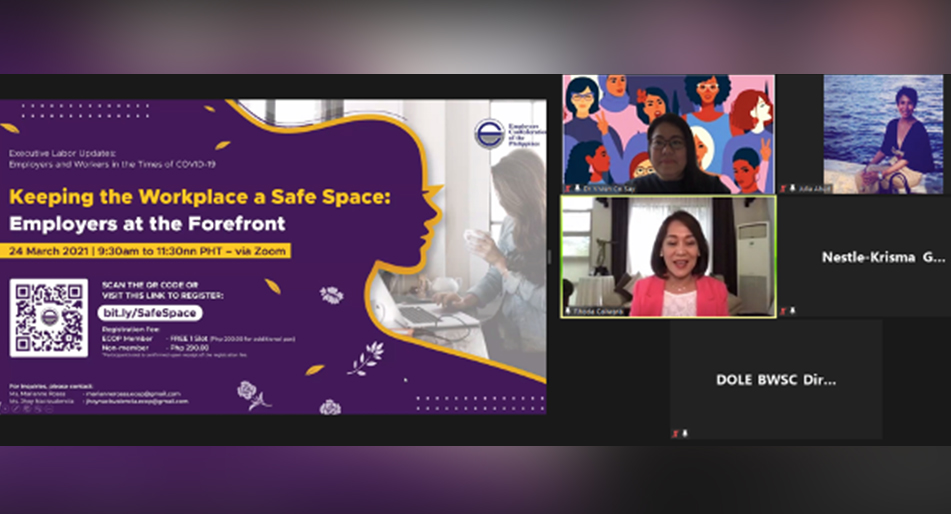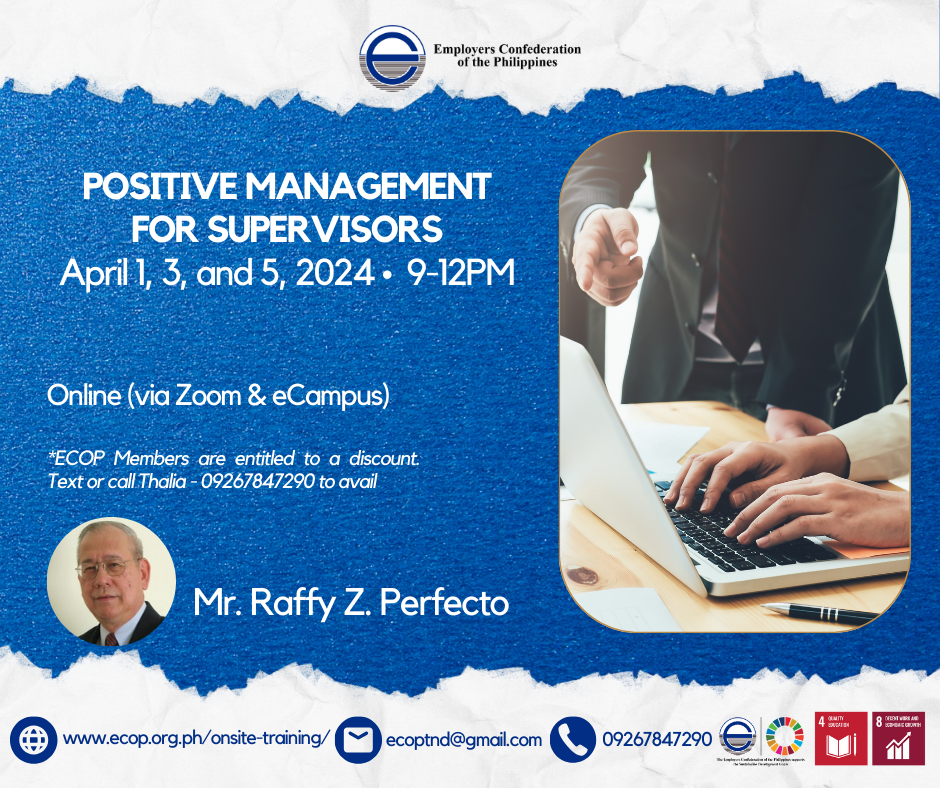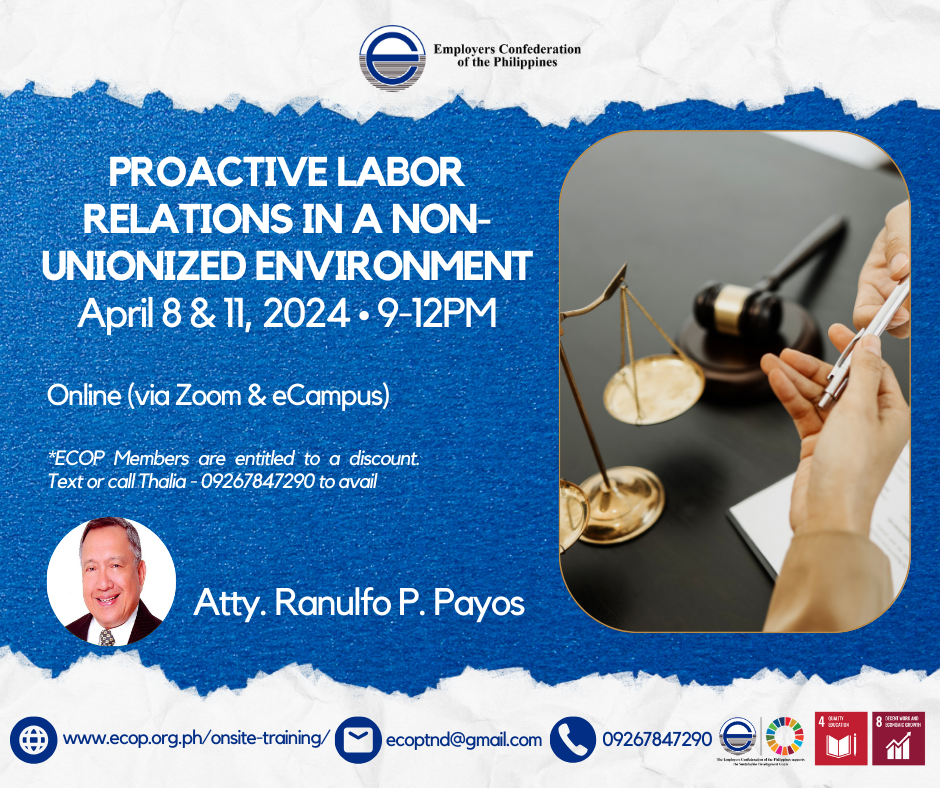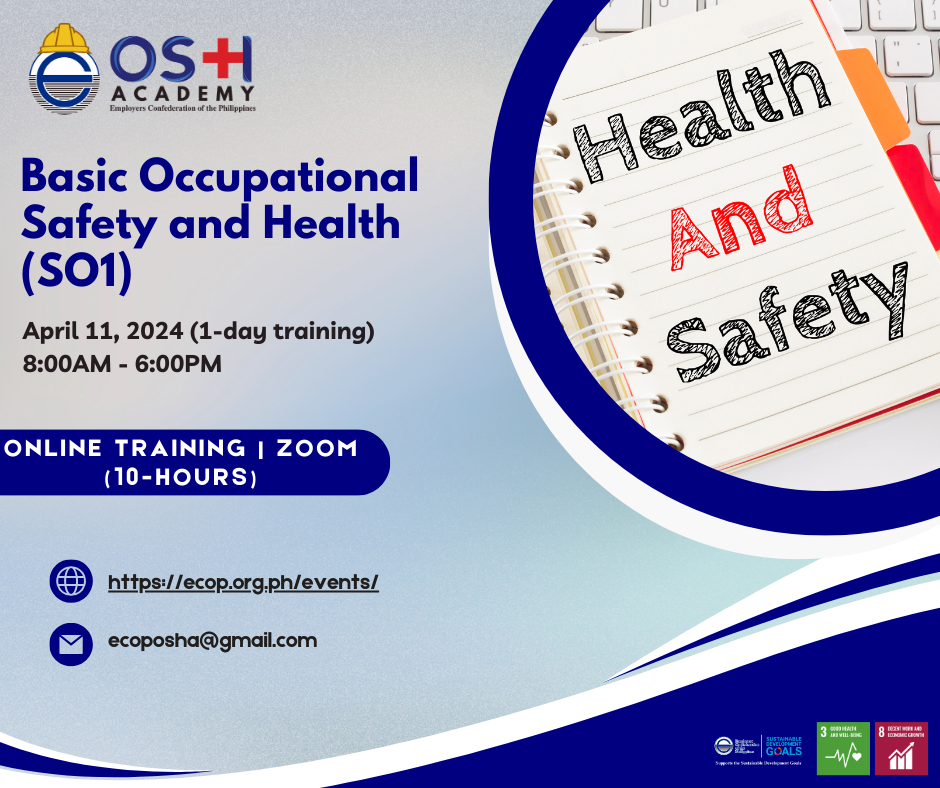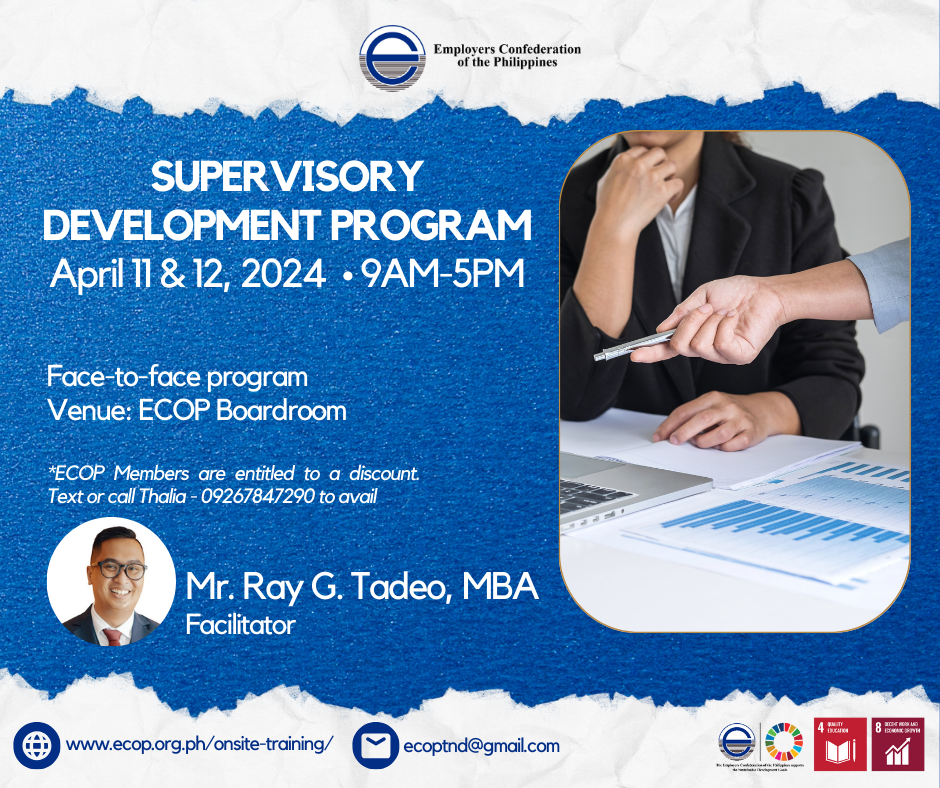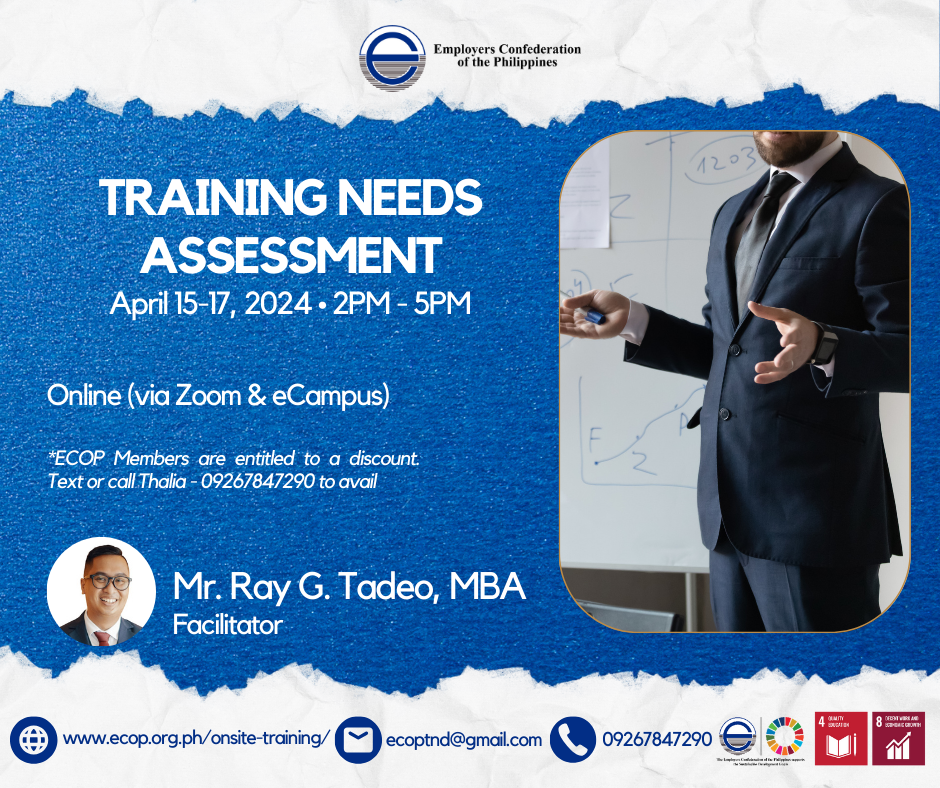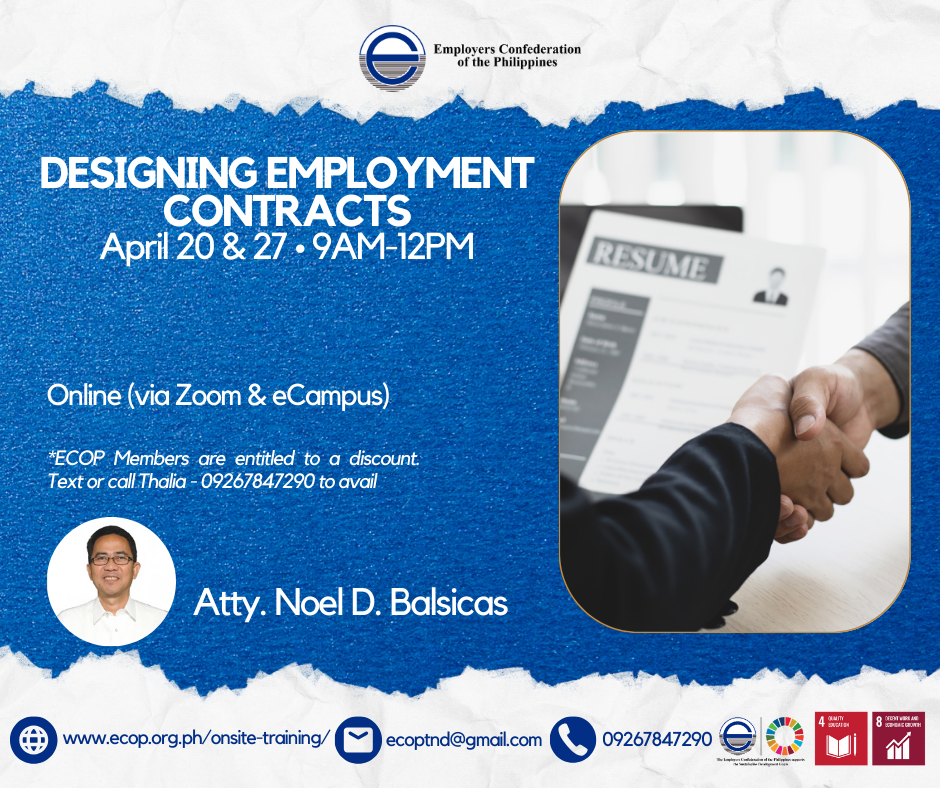On 24 March 2021, ECOP conducted an “Executive Labor Updates” entitled, “Keeping the Workplace a Safe Space: Employers at the Forefront”. Creating and promoting an environment where both men and women are accorded with full respect of their human rights remains a challenge in the Philippines. In a world of work where everything is within reach, risks of being exposed to harassment becomes magnified. Such heightened issue of sexual harassment has led to the passage of Republic Act No. 11313, otherwise known as the Safe Spaces Act. The law identified employers as one of the bearers of the responsibility to ensure the protection of people, its employees in particular, from being harassed.
Dir. Ma. Karen Perida-Trayvilla of the Department of Labor and Employment-Bureau of Workers with Special Concerns provided an in-depth discussion of its salient features, workplace gender-based sexual harassment (GBSH), and its status of implementation and challenges. She mentioned that the law addresses existing gaps and issues on equality and safety of both men and women in public and private spaces. Under Section 17 of the Act, the duties of employers include: a) disseminate copy of the law; b) provide measures to prevent GBSH; c) create an independent internal mechanism or a committee on Decorum and Investigation (CODI); and d) develop and disseminate a code of conduct or workplace policy. Data on compliance show that 95.37% of the total inspected 67,686 establishments have Anti-Sexual Harassment Policy in the workplace.
Ms. Julia Abad of the Philippine Business Coalition for Women Empowerment (PBCWE) emphasized on the need to tackle gender-based sexual harassment as 3 out of 5 women aged 18-24 have experienced sexual harassment at least once in their lifetime. She shared that PBCWE has an #ItsNotOkay Anti-Sexual Harassment Module which had its pilot run last December 2018. In this module, they provide training and awareness to assist companies in complying with their responsibilities to eradicate sexual harassment in the workplace. Moreover, PBCWE has an action plan for PBCWE member companies which pushes for the need to set-up an Employee Council (EC) to ensure fairness to all employees, the creation of CODI, and revision of existing anti-sexual harassment policies in order to effectively address GBSH in the workplace.
Atty. Krisma Guyala of Nestlé Philippines shared the good practices of the company when it comes to tackling GBSH in their workplace, which focuses on creating a safe space that entails the need to reinforce structure, empowerment, and awareness. Nestlé has its own established CODI in which more than 50% are female, chaired by a senior executive, and changed every 2 years to allow varying perspectives and backgrounds. The company also created SpeakUp Channels to help employees share their experiences while reassuring their safety, and other gender-balanced training and mentoring programs to empower, upskill, reskill, and inform of inform employees of their rights under the law.
The webinar is part of ECOP’s activities to commemorate National Women’s Month.
Upcoming Event
Visit ECOP COVID-19 Center

